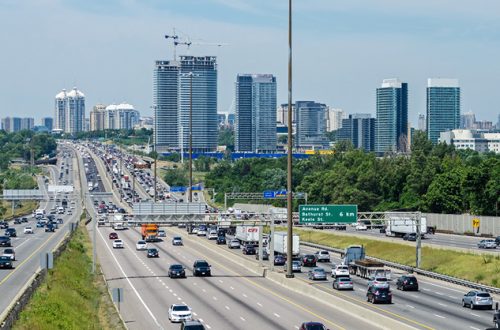In an open letter to the Premier today, the Ontario Society of Professional Engineers (OSPE) implores the provincial government to consult with engineers before implementing its cap-and-trade program.
“Ontario’s engineers are tired of being ignored. Areas of complex science, functionality and design demand the expertise of Ontario’s highly trained engineers, yet we don’t have a seat at the policy table,” said Sandro Perruzza, CEO of OSPE. “We’ve met with government officials, we’ve analyzed the data and provided reports, we’ve repeatedly asked to be included – and now we’re fed up. The province continues to put all Ontarians at risk and diminishes its ability to deliver best-possible solutions for the problems we are facing – like climate change – by not engaging engineers.”
Three recommendations from OSPE’s letter
- Engineers need to be fully engaged in the planning of the province’s cap-and-trade program, throughout conceptualization and implementation.
- It is inefficient to simply task engineers with troubleshooting already determined processes.
- High-level and technical planning decisions are currently made by non-technical, unqualified persons, which limits policy discussions and solution design.
- Engineers hold a variety of high management positions across industry, and when their expertise is not utilized, the entire province suffers.
- As the Auditor General has found, failing to engage Ontario’s engineering community in formulating policy has led to poor planning and undesirable outcomes in the past.
- Shortcomings in Ontario’s Green Energy Act underline the need for engineers in government utilities and the private sector to be fully engaged to influence policy decision-making and offer more comprehensive solutions.
- All power generation needs to be part of a well thought-out supply mix that respects supply and demand and takes into consideration Ontario’s robust nuclear and hydroelectric generation abilities.
- The Independent Electricity System Operator’s reports show the amount of surplus energy the province has produced and then has to pay to move off the grid. It is unconscionable that Ontario has built a world-class system to generate carbon-free electricity, but in doing so failed to foster a practical mixture of generation.
- The government must retain engineers to do extensive simulations and identify long-range plans before taking action.
- Collecting data, developing models, running trials and consulting with engineering experts to establish a plan is critical.
- Ontario is home to more than 250,000 engineering graduates, whom OSPE can mobilize and leverage. It is critical that government realize the potential of this partnership.
- The need to engage with engineers, have them conduct simulations, and jointly-establish a credible plan to combat climate change is of paramount importance to the continued prhttps://ospe.on.ca/wp-content/uploads/2024/10/academy-banner-7.pngrity of Ontario.





Comment (1)
Given the Ontario government has confused predictions with past observations, and substituted theory and speculation with data-driven, evidence-based policies, engineers are urgently needed at the table:
http://www.cityfloodmap.com/2015/11/ontario-climate-change-policy-minister.html
Evidence-based policies require us to check facts:
“There will still be times when someone accuses us of having lost our way, of having chosen the wrong priorities, and I know that can be hard to hear. But in moments in great and important choice, when the stakes are high, and the consequences are long-lasting, we have to test our assumptions.” Premier Kathleen Wynne, AGM, June 6, 2015
Now is a very good time !
To support its climate policy, the Government has cited commuter rail damage in 2013 as evidence of changing extreme rainfall when this is not supported by Engineering Climate Datasets, and when in fact the known flood risks (defined by a licensed Ontario engineer for Premier Davis in an early 1980s flood inquiry) have been totally ignored:
http://www.cityfloodmap.com/2015/12/stranded-metrolinx-go-train-avoidable.html
It is preposterous that operational mistakes of a rail operator, in the face of long-standing, well-documented flood risks, have been misconstrued as evidence of climate change to support Ontario energy policy. The July 8, 2013 Go Train flood was less than a 5 year return period event based on the Todmorden river gauge records beside the site, and so was the higher flood just six weeks before on May 28-29 that missed the trains due to schedule.
Train frequency explains more important than rain frequency. More Prius charging stations will not mitigate this type of risk.
When near-disasters that have been readily explained by engineering data are ‘spun’ by media and the government as unprecedented catastrophes requiring rash action and misguided mitigation policies, we are in for terribly ineffective, wasteful solutions and programs.
The simple sciences of hydrology and hydraulics have been ignored in the province and the interrelation between policies of various Ontario ministries has been forgotten. Simple facts that impermeable pavement has increased from 30% to over 70% in many Ontario urban centres since the 1950’s, thus increasing runoff and contributing to higher flood risks, has been ignored in favour of refuted rain frequency shifts to justify GHG solutions – instead of effective infrastructure solutions. Simple, measurable, quantifiable, actionable data is ignored in Ontario.
OPSE – please keep exposing the Ontario government’s lack of rational approach to complex problems of our time.
Robert Muir, P.Eng.
Toronto
PS – here are the data facts on rain frequency shifts that refute Ontario climate policy basis:
http://www.slideshare.net/RobertMuir3/storm-intensity-not-increasing-factual-review-of-engineering-datasets
Leave a Comment